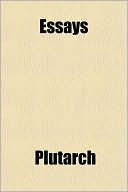

 |

|

The average rating for Essays based on 2 reviews is 3 stars.
Review # 1 was written on 2012-09-12 00:00:00 Jack Parrish Jack Parrish3 ½ stars. Hard to fairly rate this book of essays on Swedenborg's influence and connection with subsequent writers. It didn't glue my eyeballs to each page and is built for a skimming dependent on individual interests and preferences. Still, there are many excellent points in discussing Swedenborg's relevance to such diverse writers as Blake, Dostoevsky, Emerson and Transcendentalists, the Symbolists, Jung, and Borges. Czeslaw Milosz's essay on Swedenborg and Dostoevsky interested me the most. Despite Fyodor having three Swedenborg texts in his library, linking Dostoevsky's anti-materialist tendencies to Swedenborg is either obvious or untenable, depending on how strongly Milosz intended to argue causality. His more interesting points were mostly independent of the Swedenborg connection. This included a discussion of the "failure" of Dostoevsky's "man-god" characters (Myshkin, Alyosha, etc.). My favored Russian aside, those with interests in discussions of philosophy, religion, and literature will find the various essays worth their time, no matter how convinced and excited they are by Swedenborg. |
Review # 2 was written on 2011-09-09 00:00:00 Richard E. Sabatine Richard E. SabatineThis book of essays and speeches covers a lot of ground in its 166 pages. Gao Xingjian, winner of the 2000 Nobel Prize for Literature, has had his viewpoint influenced by his life in China and his exile in the West (France). Under the communist regime, the content of books and plays is dictated by the Party; in the West, in can be dictated by fashion and commercial pressure. For his own part, Gao Xingjian has attempted a literature of the individual, avoiding any isms. A quote at random: Revolutionising form should not become a sort of superstition. Is there any certainty that what comes later will be able to negate what came earlier? The idea that only the new is good has become the disease of our times, and probably has become the collective subconscious of consumerist society. But art is not merchandise, and for the artist, being able to reject market forces is critical to his being able to write good works, because these forces exert pressures harder to resist than politics or social customs. The reason I gave four stars instead of five, is that The Case for Literature contains a certain amount of the repetitiveness that such collections sometimes suffer from. But it's well worth reading. |
CAN'T FIND WHAT YOU'RE LOOKING FOR? CLICK HERE!!!